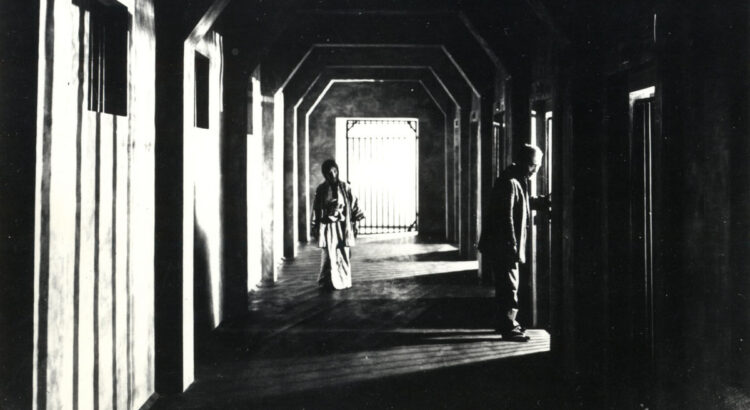Thursday, October 13, 2022~
A Page of Madness (1926) is a Japanese silent horror film directed by Teinosuke Kinugasa. Just this past Thursday, the Center for Japanese studies hosted a free screening of it at the Michigan Theater.
I first heard about the event from my Japanese, and I thought that it would be the perfect opportunity to practice my listening skills. I also don’t have much experience with horror films, so this seemed like it would be a good experience.
The general plot follows a man, played by Masao Inoue, who took a job as a janitor at a mental asylum. He did so in an attempt to get closer to his wife, played by Yoshie Nakagawa, who was admitted there.
Unusually, this film did not have intertitles as I would have expected from a silent film; however, there was a benshi, a live performer who narrated silent films. Benshi were popular in Japan during the silent film era, and some say that they may have even extended the era for Japan. During the event’s introduction, they even mentioned that in later times people would turn off the sound for movies so that they could bring in a benshi.
 Nanako Yamauchi, a graduate of the oldest film school in Japan, Nihon University’s Film Department, was our benshi that day — and she was mesmerizing.
Nanako Yamauchi, a graduate of the oldest film school in Japan, Nihon University’s Film Department, was our benshi that day — and she was mesmerizing.
I admittedly didn’t catch much of the plot since there was no form of English translation and I’ve only been studying Japanese for a little more than a year. I understood some of the basic dialogue and a few phrases, but that’s all. However, as Yamauchi mentioned before the film began, it didn’t matter if we didn’t understand her. The emotion and drama in her voice were palpable, and you could easily recognize the emotional state of each character.
Additionally, the Detroit group Little Bang Theory (Frank Pahl, Terri Sarris, and Doug Shimmin), performed an original score that they played on toy and handmade instruments. Their music complimented Yamauchi’s narration and excellently set the film’s chilling mood.
While the film itself wasn’t too scary for me, nor did I find the plot anything extraordinary (probably because I didn’t understand it), the overall experience was valuable. After learning and witnessing firsthand the unique film culture of benshi narrations, I’m definitely intrigued to see more (maybe when I have a better grasp of the language).
This event was the first of CJS’s Japanese Film Series for the year. Their theme this time is Diamonds by the Decade, exploring different eras of Japanese movies. If you’re interested in that, I’d highly recommend checking out what other films they’ll be showing at the Michigan Theater!


